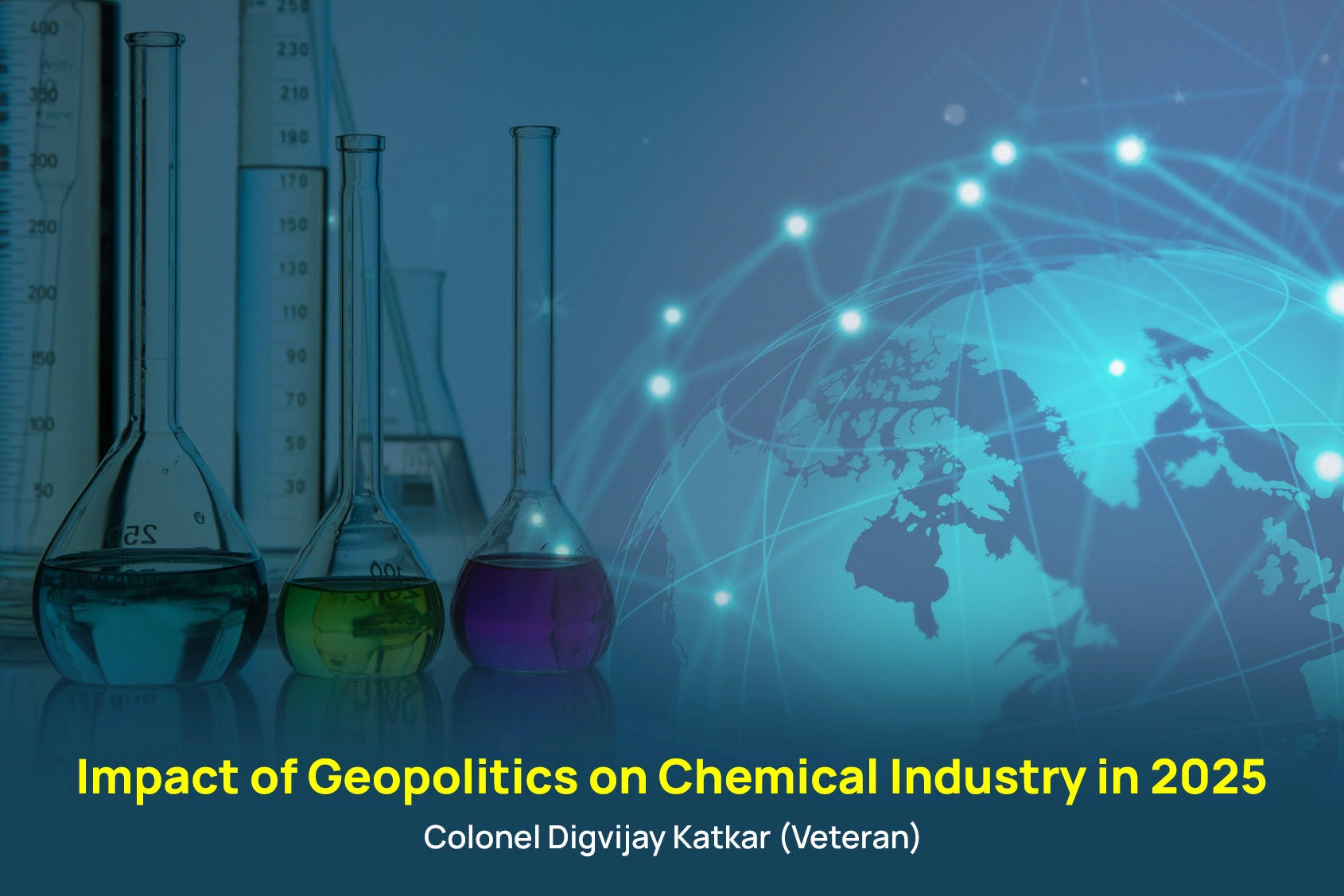-
Blogs
-
Home > Blogs > Global Outlook Of The Chemical Industry In 2025
Impact of Geopolitics on Chemical Industry in 2025

2025 will see major geopolitical activities in 2025 as follows:
- 1. Trade disruptions under new Trump administration by US.
- 2. Increase of conflict in Middle-East.
- 3. Change of dynamics in Russia – Ukraine war under new Trump administration.
- 4. Effect of global recession.
The interconnected nature of geopolitics and the chemical industry highlights the importance of strategic foresight and adaptability in navigating challenges while leveraging emerging opportunities. Geopolitics will significantly impact the chemical industry, as it intersects with energy supply chains, trade policies, environmental regulations, and regional conflicts.
Below is an analysis of the key effects of geopolitics on the chemical industry:
- 1. Supply Chain Disruptions
- Raw Material Dependency: The chemical industry relies heavily on raw materials like crude oil, natural gas, and rare earth metals. Geopolitical tensions in regions rich in these resources, such as the Middle East, Russia, or China, can lead to supply chain disruptions e.g. Sanctions on Russia have affected natural gas supplies, which are crucial for producing fertilizers and polymers.
- Trade Route Stability: Maritime trade routes like the Strait of Hormuz or the Suez Canal are critical for the transport of raw materials and chemicals. Political instability in these areas can delay shipments and increase costs.
- 2. Energy Prices and Availability
- Oil and Gas Prices: Energy is a significant cost driver for the chemical industry. Geopolitical events, such as OPEC decisions or conflicts in energy-rich regions, can lead to price volatility e.g. The Russia-Ukraine war has driven up energy prices globally, increasing production costs for petrochemicals.
- Shift to Renewables: Geopolitical support for renewable energy (e.g., EU’s Green Deal) is pushing the chemical industry to invest in sustainable practices, such as green hydrogen and bio-based chemicals.
- 3. Trade Policies and Tariffs
- Tariffs and Export Controls: Geopolitical conflicts often result in tariffs or restrictions that affect the import/export of chemicals e.g. The U.S.-China trade war imposed tariffs on specialty chemicals, impacting profitability and reshaping global trade patterns.
- Regional Trade Agreements: Agreements like USMCA or RCEP influence chemical trade flows by offering preferential tariffs and fostering investments in specific regions.
- 4. Regulatory and Environmental Pressures
- Global Standards: International agreements (e.g., the Paris Agreement) are driving stricter environmental regulations. Geopolitical alignment or divergence on climate goals impacts compliance costs and market strategies.
- Localization Trends: National policies encouraging local production of chemicals (e.g., China’s “Made in China 2025”) aim to reduce reliance on imports, reshaping global supply chains.
- 5. Investment and Innovation
- Regional Shifts: Geopolitical stability or instability determines investment flows. Countries offering stable environments (e.g., UAE, Singapore) attract chemical industry investments.
- Technology and Defence: Geopolitical competition in technology (e.g., AI, nanotechnology) impacts the chemical industry's innovation trajectory, particularly in advanced materials and defence-related chemicals.
- 6. Market Access and Consumer Demand
- Market Fragmentation: Geopolitical disputes can fragment markets, forcing companies to adapt products for different regulatory standards e.g. Divergent chemical safety regulations between the EU (REACH) and other regions complicate compliance.
- Shifting Demand: Geopolitical events often shift consumer demand for specific chemicals, such as increased demand for disinfectants during pandemics or battery materials for EVs amid energy transitions.
- 7. Conflict Zones and Crisis Response
- Impact of Wars: Armed conflicts destroy infrastructure and disrupt local markets. Reconstruction efforts, however, create demand for construction-related chemicals.
- Emergency Response: Geopolitical crises, like pandemics or natural disasters, increase the demand for medical-grade chemicals, polymers, and logistics support.
Strategic Responses by the Industry
- Diversification: Companies diversify supply chains and sourcing to reduce reliance on politically unstable regions.
- Sustainability Investments: Geopolitical focus on climate change encourages investment in green technologies.
- Digital Transformation: The adoption of advanced analytics and block chain enhances supply chain transparency and resilience.

